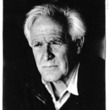Agent 6
(Libby/OverDrive eBook, Kindle)
Available Platforms
Description
More Details
Excerpt
Similar Series From Novelist
Similar Titles From NoveList
Similar Authors From NoveList
Published Reviews
Booklist Review
*Starred Review* Long-suffering Leo Demidov, a hero of the Great Patriotic War, dutiful agent of Stalin's notorious MBG and disaffected former KGB agent, is now happily married to Raisa and loving father of Zoya and Elena. It's 1965, and Raisa is selected to lead a schoolchildren's chorus to the U.S. to lessen Cold War tensions. But the FBI and the KGB are both intent on creating an incident, and Raisa is fatally shot in New York. Half mad with grief, Leo demands permission to find her killer, but he is refused. Cut to 1980: Leo is an opium addict in Afghanistan, where he advises the Soviet's puppet Afghan government on building its secret police. Even through an opium haze, he still burns with the need to avenge Raisa's death. Agent 6 is the concluding volume of the trilogy that began with the critically acclaimed and best-selling Child 44 (2008) and was followed by The Secret Speech (2009). In these first two volumes, Smith brilliantly illuminated the horrors of Stalin's Russia and the Gulag. He also gave readers Demidov, duty-bound, introspective, enduring, and ultimately a figure both tragic and heroic. Cold War machinations and Russian blunders in Afghanistan can't measure up to Stalin's reign of terror as a backdrop, but this concluding installment still has Leo front and center, and that's plenty to add to another first-class, must-read crime novel.--Gaughan, Thomas Copyright 2010 Booklist
Publisher's Weekly Review
In his third and final novel featuring Russian policeman Leo Demidov, Smith covers three decades in his protagonist's life, beginning in Stalinist Russia in 1950 when Demidov meets his soon-to-be-wife, Raisa. Then it's on to 1965, when the cold war thaws enough for Raisa and their two adopted daughters to travel to New York and get caught up in a deadly conspiracy. The book operates on several levels, as a spy thriller, a study of obsession, and a harsh criticism of political expediency, and narrator Dennis Boutsikaris finds a splendidly sardonic voice that captures all three. When it comes to dialogue, much of it from the mouths of Smith's carefully crafted Russian characters, Boutsikaris uses a minimal accent and a slightly brusque, typically Slavic manner of speech. Equally commendable is his subtle approach to female voices: a softening and mild shift in pitch. Worthy of special notice is his vocal choice for Jessie Austin, a world famous African-American singer and avowed Communist. It's vaguely Southern, educated, and filled with the wonder of the politically naive. A Grand Central hardcover. (Jan.) (c) Copyright PWxyz, LLC. All rights reserved.
Library Journal Review
Fortified by formidable details of Soviet history, Smith's closing volume of the Leo Demidov trilogy (Child 44; The Secret Speech) knits together iconic characters and elements as Leo for 30 years inexorably seeks justice. In a devastating tragedy in 1965, his wife is killed while on a Cold War public relations trip to Manhattan, but Leo is denied any chance to investigate. He is assigned as a police adviser in Afghanistan, where events make it possible for him to get to New York. Though weary, he works to find out the truth behind Raisa's death. VERDICT Fans of Smith's first two books will avidly seek out the final chapter, though this one stands on its own as well. The Afghan interlude is a searing echo of today's headlines, while the buildup of suspense over several decades is the armchair equivalent of a jaw-jarringly extreme ride at an amusement park. [See Prepub Alert, 7/18/11.]-Barbara Conaty, Falls Church, VA (c) Copyright 2011. Library Journals LLC, a wholly owned subsidiary of Media Source, Inc. No redistribution permitted.
Kirkus Book Review
Child 44, 2008, etc.) returns with more intrigue from behind the old Iron Curtain. Actually, a good chunk of the intrigue occurs on this side of the Atlantic. Leo Demidov is a loyal functionary, a good servant of the state and its apparatus, "a decorated soldier recruited to the ranks of the secret police after the Great Patriotic War." He is also sensitive to the Orwellian implications of his job, aware that open sedition isn't always the thing to look out for; more important are the incomplete or insincere expressions of love for the Great Leader and the system. Naturally, under such a regime even the most loyal of servants falls under suspicion, and on that point some of Smith's taut tale hinges on the introduction of some key players. One is an African-American singer named Jesse Austin, transparently modeled on Paul Robeson, who, "unlike many Negro singers," as one apparatchik dryly puts it, is unreligious--or better, "Communism is his church." When Austin falls to an assassin in New York, Demidov's wife, Raisa, traveling there on a cultural mission, is implicated, thanks in good part to a loyal cop on the capitalist side of the Wall, an FBI man who specializes in "nonlegal harassment" of suspected Communists and fellow travelers. Demidov is stymied when his controllers deny him permission to dig into the truth--and, nonlegally, he takes matters into his own hands, which puts him in some of the more precarious corners of the world, not least of them Afghanistan. Smith's tale spans years and continents, and the period details are exactly right even as he spins out an old-fashioned thriller that would do Ludlum and le Carr proud. The story is a little long, but it has a nicely creepy and--yes--Orwellian ending that amply repays the occasional detour in getting there. A big book, in every sense, that's sure to draw attention.]] Copyright Kirkus Reviews, used with permission.
Booklist Reviews
*Starred Review* Long-suffering Leo Demidov, a hero of the Great Patriotic War, dutiful agent of Stalin's notorious MBG and disaffected former KGB agent, is now happily married to Raisa and loving father of Zoya and Elena. It's 1965, and Raisa is selected to lead a schoolchildren's chorus to the U.S. to lessen Cold War tensions. But the FBI and the KGB are both intent on creating an incident, and Raisa is fatally shot in New York. Half mad with grief, Leo demands permission to find her killer, but he is refused. Cut to 1980: Leo is an opium addict in Afghanistan, where he advises the Soviet's puppet Afghan government on building its secret police. Even through an opium haze, he still burns with the need to avenge Raisa's death. Agent 6 is the concluding volume of the trilogy that began with the critically acclaimed and best-selling Child 44 (2008) and was followed by The Secret Speech (2009). In these first two volumes, Smith brilliantly illuminated the horrors of Stalin's Russia and the Gulag. He also gave readers Demidov, duty-bound, introspective, enduring, and ultimately a figure both tragic and heroic. Cold War machinations and Russian blunders in Afghanistan can't measure up to Stalin's reign of terror as a backdrop, but this concluding installment still has Leo front and center, and that's plenty to add to another first-class, must-read crime novel. Copyright 2011 Booklist Reviews.
Library Journal Reviews
This juicy, detailed novel is the final third of Smith's trilogy begun with The Secret Speech (you never heard it) and continued with Child 44 (ma and pa plum run outta names after #43). It's long and political, with spies and people fixated on ideologies, but TRS keeps this thing really chuggin' as he examines how loyalty is different than ideology. Though supported by deep, polished characters, the story focuses on hard-ass KGB man Leo Demidov in 1950 Stalinist/monolithic Russia. Leo's world is changed when he meets Raisa, and superlative little moments show how an Apparatchik in love isn't any different from you and me. Leo and Raisa's intricate relationship shares all the intimacy and vulnerability of anyone's (except maybe David Bowie and Iman's). By 1965, Leo is an ex-KGB man with switched loyalties: he's happy to play John Lennon to Raisa's Yoko and is a full-bore family man. Unfortunately, Raisa dies while chaperoning a trip to the United States that summer, a Cold War pawn. By 1980, Leo's considerably darker allegiances lie with opium and dreams of revenge. There's no getting around the fact that this is a 450-plus-page assburner of a book, not something you can realistically get through without a lot of, like, intent, but it's worth the ride. (c) Copyright 2011. Library Journals LLC, a wholly owned subsidiary of Media Source, Inc. No redistribution permitted.
Library Journal Reviews
Fortified by formidable details of Soviet history, Smith's closing volume of the Leo Demidov trilogy (Child 44; The Secret Speech) knits together iconic characters and elements as Leo for 30 years inexorably seeks justice. In a devastating tragedy in 1965, his wife is killed while on a Cold War public relations trip to Manhattan, but Leo is denied any chance to investigate. He is assigned as a police adviser in Afghanistan, where events make it possible for him to get to New York. Though weary, he works to find out the truth behind Raisa's death. VERDICT Fans of Smith's first two books will avidly seek out the final chapter, though this one stands on its own as well. The Afghan interlude is a searing echo of today's headlines, while the buildup of suspense over several decades is the armchair equivalent of a jaw-jarringly extreme ride at an amusement park. [See Prepub Alert, 7/18/11.]—Barbara Conaty, Falls Church, VA
[Page 68]. (c) Copyright 2011. Library Journals LLC, a wholly owned subsidiary of Media Source, Inc. No redistribution permitted.Publishers Weekly Reviews
Spanning decades, the ambitious final volume of Thriller Award–winner Smith's trilogy set in the Soviet Union (after 2009's The Secret Speech and 2008's Child 44) takes former KGB agent Leo Demidov from Moscow to Manhattan via a gripping, relentless whodunit plot. In 1950, the Soviet authorities plan to exploit the arrival in Moscow of Jesse Austin, a Paul Robeson–like American singer and dedicated Communist, for propaganda purposes, but Austin's refusal to play along creates complications. The full implications of Austin's behavior don't become apparent until the action shifts to 1965, when Demidov's wife and two adolescent daughters travel to New York City as part of a delegation intended to ease cold war tensions, and tragedy ensues. Most readers will reach the final page with regret and in awe of Smith's uncompromising vision of the realities of a police state and the toll it takes on those caught in its meshes. (Jan.)
[Page ]. Copyright 2011 PWxyz LLCReviews from GoodReads
Citations
Rob Smith, T. (2012). Agent 6 . Grand Central Publishing.
Chicago / Turabian - Author Date Citation, 17th Edition (style guide)Rob Smith, Tom. 2012. Agent 6. Grand Central Publishing.
Chicago / Turabian - Humanities (Notes and Bibliography) Citation, 17th Edition (style guide)Rob Smith, Tom. Agent 6 Grand Central Publishing, 2012.
Harvard Citation (style guide)Rob Smith, T. (2012). Agent 6. Grand Central Publishing.
MLA Citation, 9th Edition (style guide)Rob Smith, Tom. Agent 6 Grand Central Publishing, 2012.
Copy Details
| Collection | Owned | Available | Number of Holds |
|---|---|---|---|
| Libby | 1 | 1 | 0 |






































